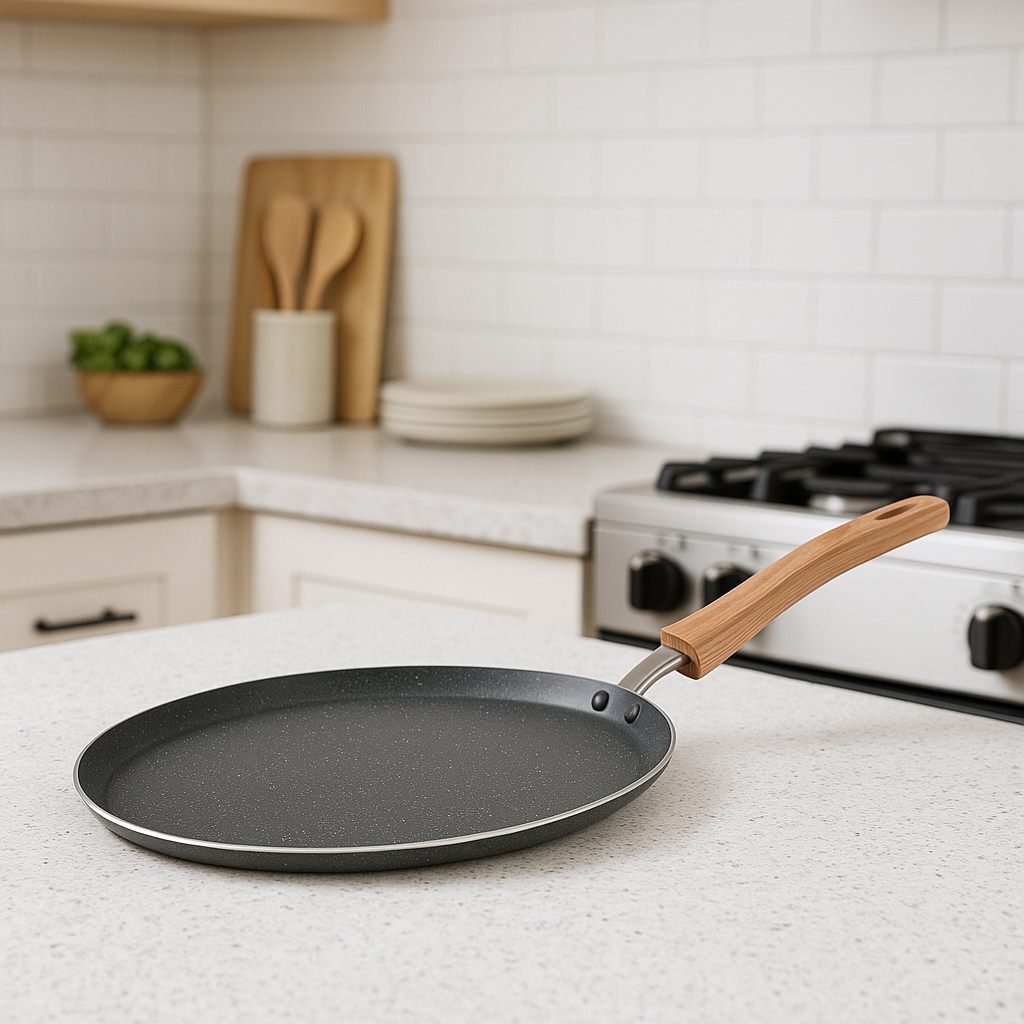The Differences Between Aluminium and Anodised Aluminium Bakeware
May 15, 2025
Aluminium Bakeware has been a staple in kitchens for decades. Known for its outstanding heat conductivity, Aluminium Bakeware ensures even heat distribution across the surface, which helps prevent uneven baking or undercooked spots. This makes it a favorite among bakers for cakes, cookies, and pastries. The lightweight nature of Aluminium Bakeware also makes it easy to handle, especially when moving trays in and out of the oven.
However, Aluminium Bakeware does have some limitations. One of the main concerns is that aluminum is a reactive metal. This means that when it comes into contact with acidic or alkaline foods—like tomatoes, vinegar, or citrus—it can react and alter the taste of the food. It may even cause the bakeware to discolor over time. Additionally, Aluminium Bakeware is more prone to scratches and dents, which can shorten its lifespan.

That's where Anodised Aluminium Bakeware comes in. Anodisation is an electrochemical process that thickens the natural oxide layer on the surface of the aluminum, making it much harder and more durable. Anodised Aluminium Bakeware offers all the benefits of traditional aluminum—such as outstanding heat conduction—but without the reactivity issue. This makes Anodised Aluminium Bakeware ideal for baking all types of foods, including those with acidic ingredients, without worrying about taste contamination or discoloration.
Another benefit of Anodised Aluminium Bakeware is its non-stick performance. Although not always marketed as non-stick, the anodised surface is smoother and more resistant to food sticking compared to regular Aluminium Bakeware. This reduces the need for excessive greasing or the use of baking paper, simplifying both the baking and cleaning processes.
Durability is another key factor that sets Anodised Aluminium Bakeware apart. The hard surface created by anodisation is resistant to scratches, corrosion, and wear, making it an outstanding long-term investment. While Aluminium Bakeware is affordable and readily available, it may need replacing more often due to dents or surface damage. In contrast, Anodised Aluminium Bakeware can maintain its shape and performance for years, even with frequent use.
When considering an Aluminum Baking Pan, it's important to distinguish between untreated and anodised varieties. A standard Aluminum Baking Pan provides great performance for everyday baking but may require more care and attention, especially when cleaning. Acidic ingredients can stain the surface of a regular Aluminum Baking Pan, and it's generally not dishwasher safe due to the potential for corrosion or pitting. Meanwhile, an Anodised Aluminium Bakeware pan is much easier to maintain and usually dishwasher safe, depending on the manufacturer's guidelines.
Many professional bakers choose Anodised Aluminium Bakeware because it combines the benefits of aluminum's heat responsiveness with added strength and resistance. Whether you're baking delicate sponge cakes or roasting vegetables, Anodised Aluminium Bakeware offers reliability and consistency in performance.
That said, Aluminium Bakeware still has its place. For casual bakers or those just starting out, its lower cost and widespread availability make it a practical choice. A high-quality Aluminum Baking Pan can deliver outstanding results as long as you take proper care of it—hand washing, avoiding acidic foods, and storing it carefully can extend its lifespan.
The main differences between Aluminium Bakeware and Anodised Aluminium Bakeware come down to durability, reactivity, and maintenance. While both types of bakeware are made from aluminum and offer outstanding heat conduction, Anodised Aluminium Bakeware goes a step further by offering a harder, more stable surface that resists wear and reacts less with food. Whether you choose a classic Aluminium Bakeware option or invest in a high-performance Anodised Aluminium Bakeware set, understanding the characteristics of each will help you make an informed decision that suits your baking style and needs. And if you're shopping for your next Aluminum Baking Pan, knowing these distinctions can ensure you get value out of your purchase.
 English
English русский
русский Français
Français Español
Español Português
Português عربى
عربى














